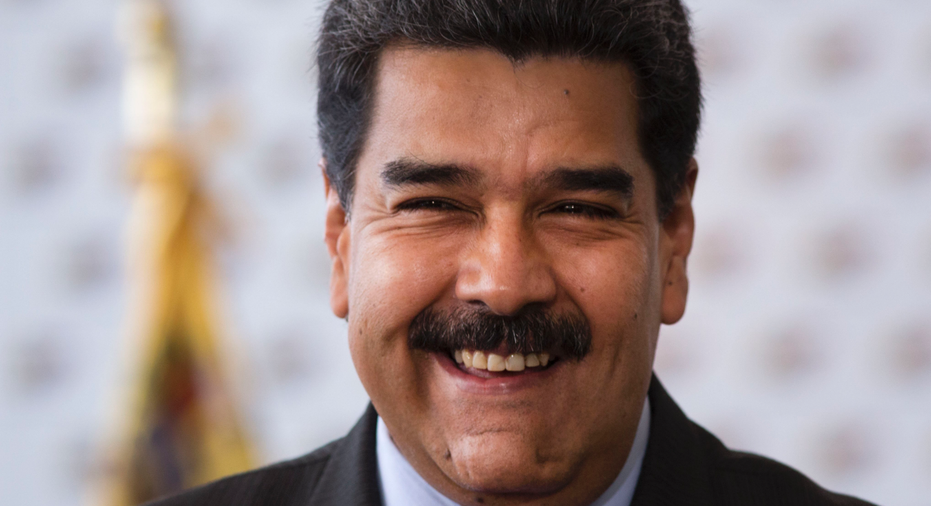Venezuela president solution to inflation: Change money

CARACAS, Venezuela – President Nicolas Maduro attempted to tackle Venezuela's staggering inflation Thursday by lopping three zeros off the increasingly worthless currency called the bolivar.
New bills replacing those like the current 100,000 note — worth less than 50 U.S. cents on the commonly used black market — should begin circulating June 4, he said.
The move comes as Venezuelans struggle to find food, medicine and cash in the worst economic crisis ever to strike the oil-rich country.
"Let's defend our bolivar!" Maduro said in a state television broadcast.
He said the "redenomination" will relieve the cash shortages.
Venezuela holds the world's largest oil reserves and once shined as one of Latin America's wealthiest nations. A fall in global oil prices and a collapse in Venezuela's crude production after nearly 20 years of socialist rule and mismanagement of the state-run oil company sent the economy into a tailspin.
A cash shortage has spiked as opposition lawmakers say the inflation rate has soared above 6,000 percent in the 12-month period ending in February. The economic crisis has left Venezuelans standing in lines for hours to buy common food items and withdraw small increments of scarce cash from ATM machines.
One kilogram (2.2 pounds) of sugar costs around 250,000 bolivars. Meanwhile, the monthly minimum wage is less than 400,000 bolivars, which along with a food bonus amounts to about $5.60 at the black market exchange rate.
Critics consider Maduro's plan a superficial solution with little chance at solving the deep economic problems plaguing Venezuela.
"Dropping three zeros from the currency without solving the problem driving hyperinflation will help nothing," tweeted Asdrubal Oliveros, a Caracas-based economist and director of the Ecoanalitica.
The issue of new currency by Maduro, who is seeking re-election this year, is the second in the last decade. In 2008, then-President Hugo Chavez employed a similar tactic to circumvent high inflation by eliminating three zeros.
Maduro's main opponent in the presidential election, Henri Falcon, proposes dollarizing Venezuela's economy, a move Maduro staunchly rejects.
Venezuela's new money will also include two coins along with eight paper bills from 2 bolivars to 500 bolivars, said Maduro, without detailing how Venezuelan banks will handle the conversion.
The current 100,000-bolivar note is the largest in circulation now and will have been in existence for less than a year by the time it becomes obsolete.
Maduro's government also in the middle of rolling out Venezuela's own form of bitcoin, the petro, in an attempt to outmaneuver crippling U.S. sanctions. The U.S. Treasury Department recently said it is illegal for American citizens to own Venezuela's digital currency.



















